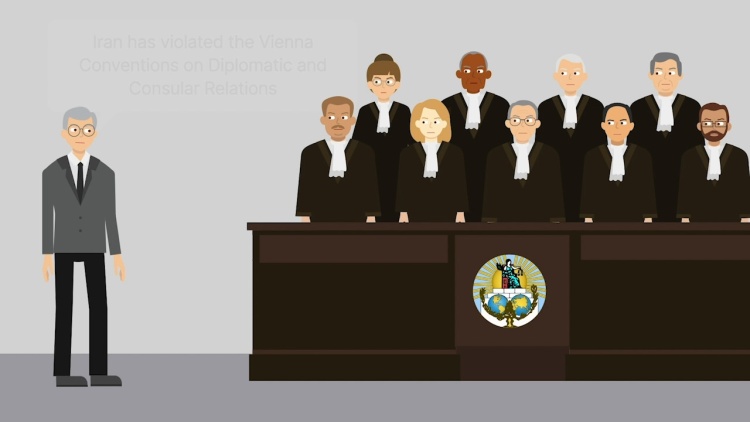The Diplomatic and Consular Staff Case (U.S. v. Iran)
International Court of Justice
1980 I.C.J. 3 (1980)

- Written by Sean Carroll, JD
Facts
On November 4, 1979, the Muslim Student Followers of the Imam’s Policy (militants) invaded the United States embassy in Tehran and took the American diplomatic and consular staff hostage. The militants damaged the embassy and destroyed embassy documents. The invasion lasted for hours, but despite repeated requests, Iranian military forces did not arrive until later. Once on scene, the Iranian military did not attempt to free the hostages. After the active invasion ended, the Iranian government claimed that the U.S. was responsible for the events, and announced that the hostages would remain until the U.S. returned the former Shah of Iran for trial. On November 29, 1979, the U.S. filed a claim against Iran in the International Court of Justice (ICJ), alleging violations of the Vienna Convention on Consular Relations of 1961 and 1963, and the Treaty of Amity, Economic Relations, and Consular Rights of 1955. The Vienna Conventions required signatories to “take all appropriate steps” to protect diplomatic and consular staff in foreign embassies, as well as embassy facilities and archives. Iran declined to submit formal documents or otherwise participate in the proceedings, except for two letters in which it stated that the ICJ should not hear the case, because the hostage situation resulted from years of American interference with and oppression against Iran.
Rule of Law
Issue
Holding and Reasoning ()
What to do next…
Here's why 907,000 law students have relied on our case briefs:
- Written by law professors and practitioners, not other law students. 47,100 briefs, keyed to 996 casebooks. Top-notch customer support.
- The right amount of information, includes the facts, issues, rule of law, holding and reasoning, and any concurrences and dissents.
- Access in your classes, works on your mobile and tablet. Massive library of related video lessons and high quality multiple-choice questions.
- Easy to use, uniform format for every case brief. Written in plain English, not in legalese. Our briefs summarize and simplify; they don’t just repeat the court’s language.





